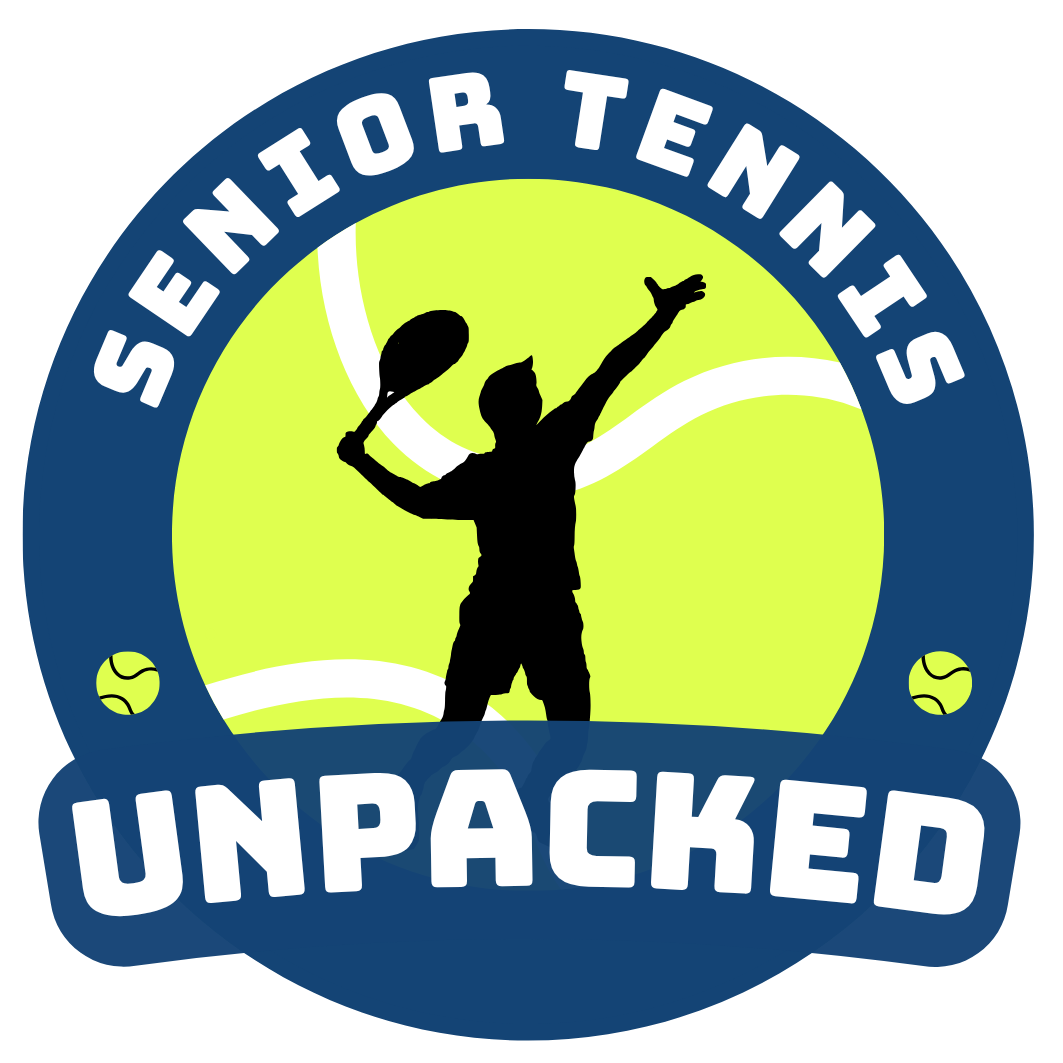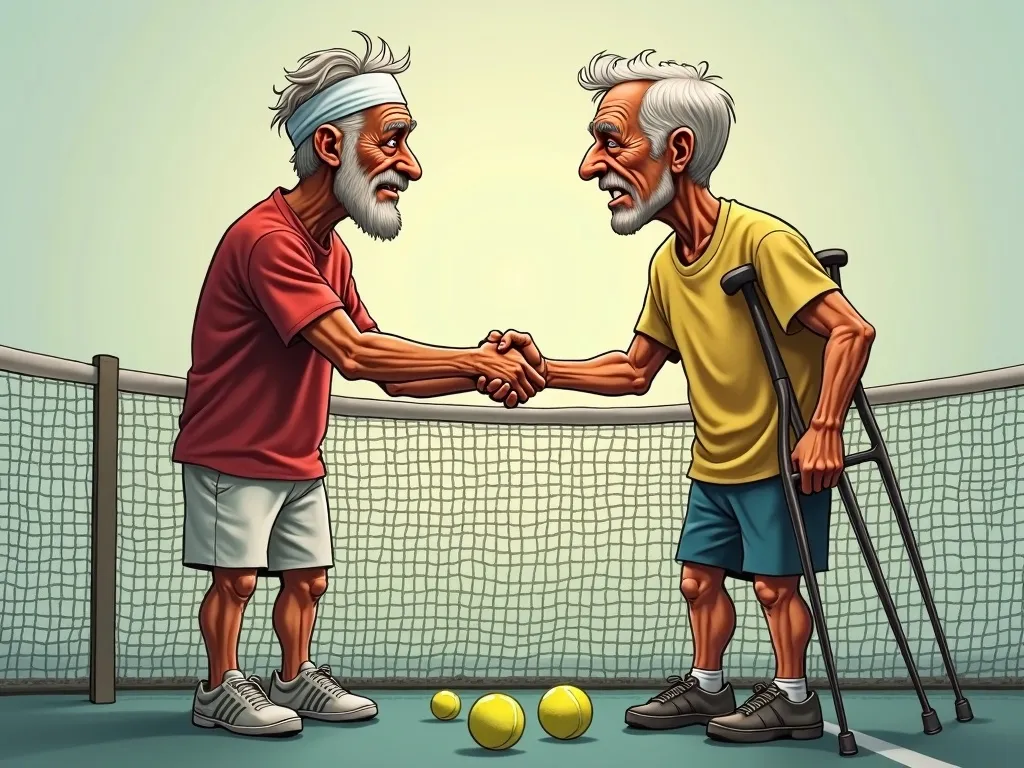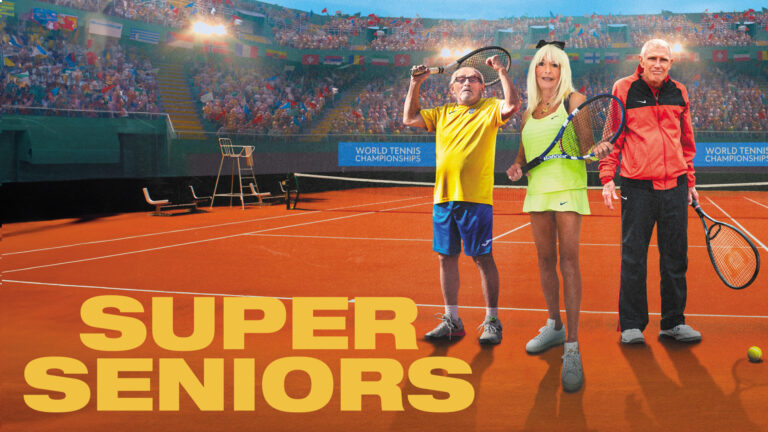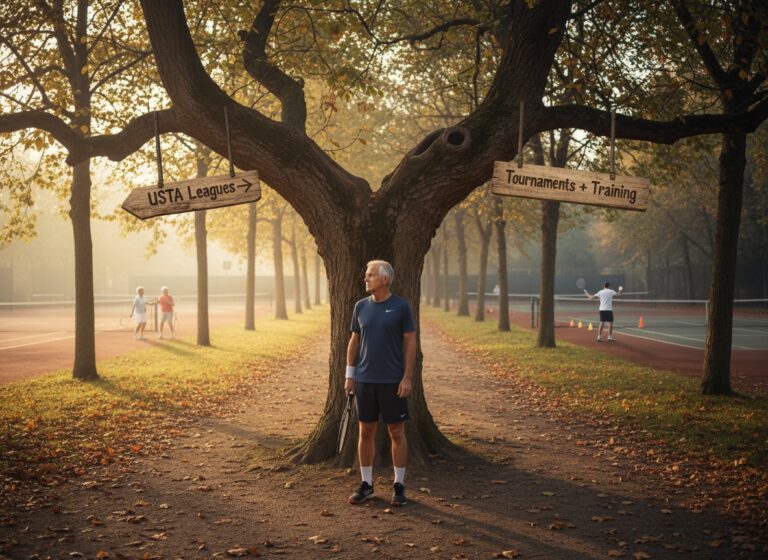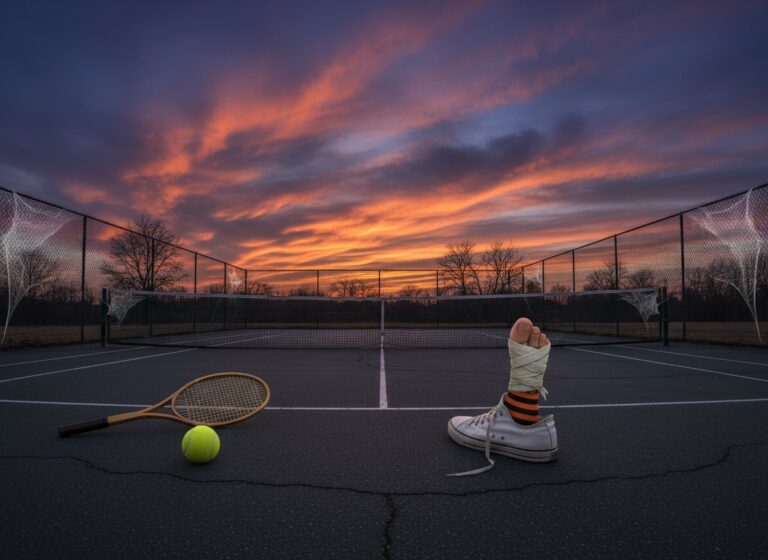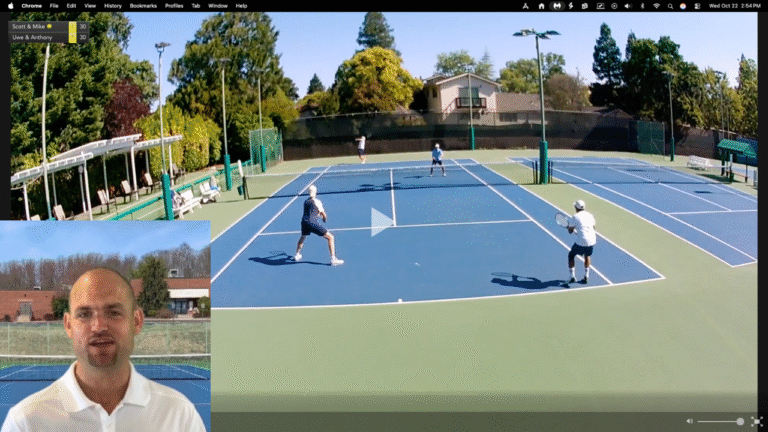A New Kind of Tournament
The pitfalls and opportunities of senior tennis were on full display this past week in a new experiment from NorCal USTA: a mid-week daytime Age Group Open. For those who haven’t dipped a toe into this format, it’s not your usual NTRP, WTN, or UTR bracket. No, here you’re sorted strictly by age—five-year increments starting at 35. Which means in any given round you might face a former ATP journeyman or someone who just Googled “how to hold a tennis racquet” the week before.
Naturally, I never draw the latter. Some guys collect trophies; I seem to collect grinders with gym memberships.
This time, the 65’s singles draw featured a mighty five players. You’d think more of us would show up—we’re supposed to be retired, right? Extra time on our hands? Apparently, some of my peers are spending that time more wisely.
The Email That Got Me Scouting Again
One familiar face popped up in the bracket: my old doubles partner Mike. A good friend, a dangerous singles opponent, and—judging from his email—an optimist.
“Your first round should be an easy win,” he wrote, “and then you’ll have the privilege of playing me in the semis.”
Terrific. I had sworn off scouting and rating comparisons, choosing instead to just play whoever lined up across the net. But if someone else does the dirty work for me? Well, I’m not made of stone.
Of course, the numbers only confused things. My opponent’s WTN was half a point higher than mine (higher is worse), but his UTR was a full point lower (which meant I should wipe the court with him), and his NTRP was also level below mine. Basically, the tennis rating system was telling me: Racquet in one hand and a drink in the other, you got this!
So, I came up with the only sensible game plan: ignore the math, put my head down, attack the weaknesses, and try not to pull anything important before lunch.
A Marathon First Match
The guy I’m supposed to beat easily? One word describes him. Relentless. The guy dragged me into more deuces than a Las Vegas casino. Every game was a street fight.
At one point, the referee wandered over and just…stayed. She eyeballed our scorecards, suspiciously checking her watch like we were stealing her Monday morning.
Finally, during yet another 10-minute game, she asked for the score. When I told her it was only 2-0 in my favor, after 30-plus minutes of play, she gasped so hard I thought she might call for a defibrillator.
An hour later, I somehow pocketed the first set 6-1. Yes, you read that right. Six to one. Probably the longest 6-1 set in tennis history. The second set was tighter, but I closed it out 6-4.
Match time: nearly three hours. Tournament director’s comment? “You know we budget 90 minutes for these matches.” Adorable.
I was, of course, the first one on and the last one off the court. That used to happen at parties back in my twenties, but I was having more fun then.
Semi-Final Showdown with Mike
The next morning, I arrived determined to stay on schedule. My buddy Mike was waiting. For the record, I had never taken more than three games in a match off him. Ever. But hey, you have to walk onto the court believing today could be different, or why bother?
And I did play better. More disciplined, fewer wild misses, even flashes of offense that drew compliments from Mike after the fact. Still, the scoreline didn’t flatter me: 3-6, 2-6.
Progress? Maybe. Confidence intact? Mostly. My shot selection at key points still needed work—but at least it wasn’t a complete shellacking.
Bonus Round: Fighting for Third Place
Normally, a loss would mean packing it up. But with a draw this small, I got a consolation prize: a third-place playoff. Three matches for my entry fee—finally, some value!
But first came a neighborhood doubles league match that evening. I was excited. Nothing like back-to-back competition to make you feel like a touring pro—minus the endorsement deals.
Everything was going smoothly until I chased down a forehand and rolled my ankle. Reflexes kicked in, and I tossed my racquet aside mid-fall to save my hand. A graceful dive? Hardly. But no broken bones, and after popping a few Advil, I limped through the doubles. We lost to two guys whose combined age was still less than mine. I comforted myself with the fact that they’ll get old too—eventually.
The Bronze Medal Match That Wasn’t
Next morning, ankle still tender but semi-functional, I drove 40 minutes through traffic for my playoff match. On the way, I pictured a gritty, pain-defying performance worthy of a Hollywood montage.
Instead, I got a plot twist.
After a lively warm-up, my opponent caught the ball mid-rally and said, “Sorry Mike, I have to call it. My elbow’s killing me.”
Just like that, match over. Default win. Third place secured without hitting a single point that counted.
Was I disappointed? Sure. But also relieved. My ankle wasn’t thrilled about two sets of pounding anyway. And hey, I was officially a bronze medalist. The record book won’t mention the Advil, the ankle, or the elbow.
When Simply Showing Up Wins
The weekend wrapped with another twist. Remember my buddy Mike in the final? His opponent had to default too—not because of injury, but because his car broke down on the way. Tough luck after driving all the way from Tucson to NorCal just to play in this tournament.
So, Mike won the whole thing by attrition. And me? I took third the same way. Not the way either of us pictured it, but the draw sheet doesn’t ask for details.
In senior tennis, half the battle is just showing up in one piece. Injuries, car trouble, mysterious rating discrepancies—it’s all part of the landscape. Sometimes you advance with clean winners; sometimes you advance because your opponent can’t lift his arm above his shoulder. A win is a win, even if the highlight reel is shorter than the warm-up.
Lessons from the Week
Sure, injuries happen even to players in peak shape. But the weekend reinforced what I already knew: the best “secret weapon” for senior tennis is simply staying healthy enough to play. Do the off-court work, keep the body tuned, and bring extra Advil. You never know when you’ll need it.
Plot twists will come. Opponents will default. Off court surprises will always rear their head. But if you show up, sometimes the tournament gods hand you a bronze medal without even making you sweat for it.
Your Turn
How about you? Have you ever advanced because an opponent couldn’t play—or been the one forced to default? Share your stories below. We’ve all got them, and misery (and attrition) loves company.
